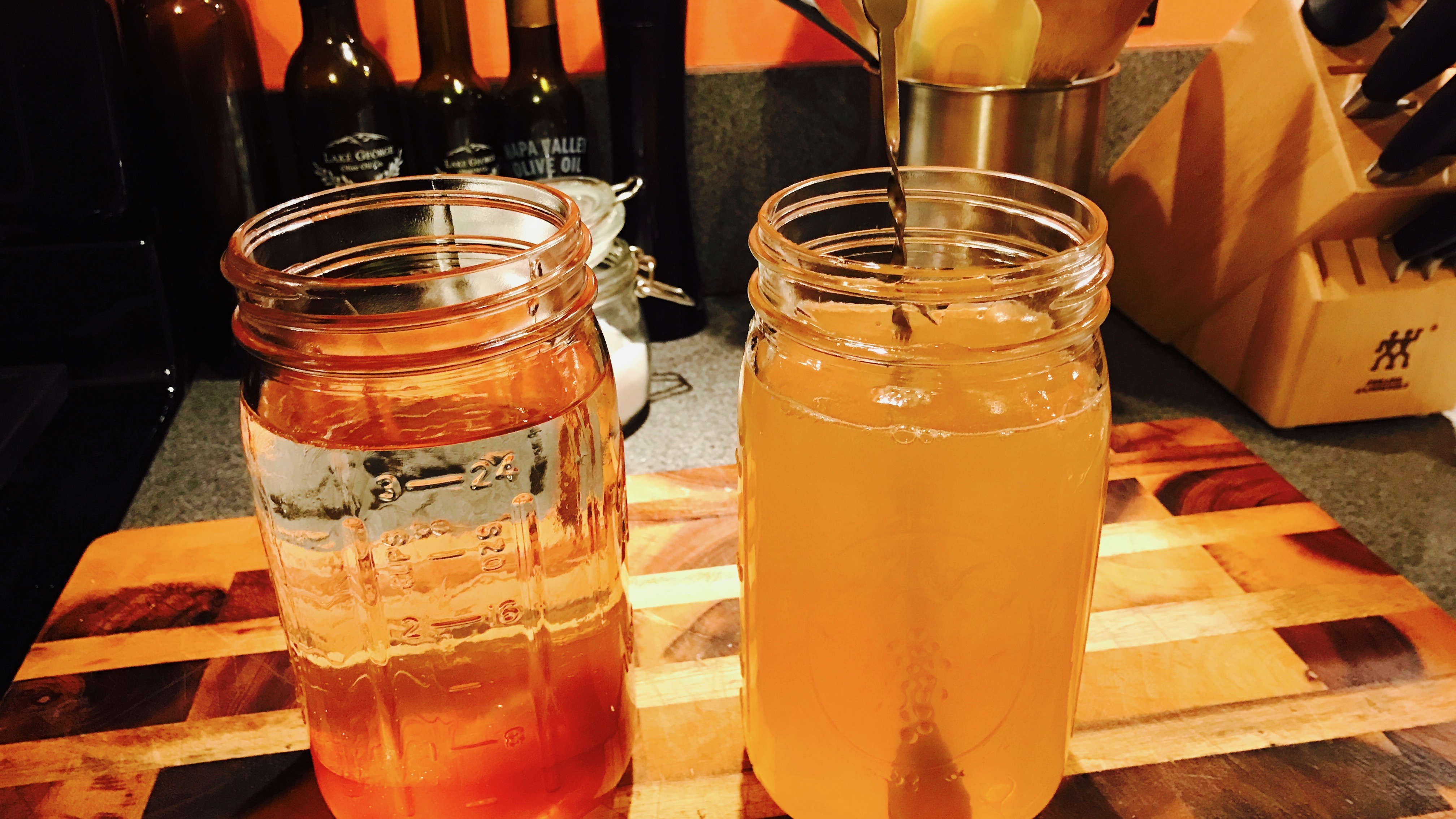
The Drink of Gods and Champions?
This weekend American Gods, based on the acclaimed novel by Neil Gaiman, will air its long-awaited premiere on STARZ. To celebrate, I’ll be raising a glass of mead.
For those unfamiliar with the novel, the premise is awesome; each time a group of people have come to America, they’ve brought their Gods with them. Even as old beliefs have died out, the Gods have remained.
Now the old deities are about to wage war with the new ones—technology, money, etc. It promises to be be an amazing show, and I’m thrilled, so. . .
Let’s talk about mead, also known as honey wine and, of course, the drink of the Gods! It just so happens my husband and I started fermenting mead in January. We made a quick ‘young’ batch, and are now sitting on a gallon that has been aging since the beginning of February. Sadly, it won’t quite be done for the American Gods premiere, but it has been bubbling away long enough for me to gain a certain appreciation and respect for the beverage.
But first, what is it?
Often thought to be the world’s oldest alcoholic beverage, mead is simply honey and water fermented with yeast, which is naturally contained within the (raw) honey itself. Early in American Gods there is a scene where the protagonist Shadow and the mysterious Mister Wednesday seal a deal over the drink. Gaiman describes the flavor in the novel:
“It reminded him a little of prison hooch, brewed in a garbage bag from rotten fruit and bread and sugar and water, but it was smoother, sweeter, infinitely stranger.”
– Neil Gaiman, American Gods
Mr Wednesday goes on to describe the flavor as tasting like “a drunken diabetic’s piss.” Harsh, right? I’m sure you’re flying out the door right now to pick up a bottle. Your next question is likely:
Why the hell are you wasting your time fermenting something like that?
Curiosity, first and foremost. It’s fascinating to think about combining two things as simple as honey and water end ending up with this ancient beverage. Much like my experience fermenting sauerkraut, I feel like creating mead connects me to history and tradition that is virtually forgotten in today’s society. As I’ve said before, it makes my world smaller, in a good way.

Our first gallon batch, bubbling away.
Secondly, turns out it’s delicious! At least the stuff we made at home. The mead you get in the store is certainly an acquired taste; we had our first experience when my oldest childhood friend gave us a bottle as a wedding gift, and it wasn’t bad, just different. See, the sweetness is cloying, and exists somewhere between the flavor of port and vermouth with the honey kind of floating underneath. While we enjoyed it then, I didn’t buy another bottle until after we’d started fermenting our own, and the experience was much the same.
I will immodestly say the stuff we made was superior. I don’t know if that’s because it was flavored with pride, or really special raw local honey—probably the latter. And we drank it young. . . after only a few weeks. It was sweet and carbonated and almost refreshing. The alcohol content wasn’t too high because it was only partially fermented, but the results gave us the courage to try aging some.
I’m hopeful this batch will be done around Memorial Day, at which time you can expect a post on some life lessons I’ve learned from the process. But I won’t get ahead of myself.
If you’re planning to watch American Gods, I suggest you pick up a bottle, chill it, and give it a try during the premiere! There seems to be a mead revolution going on in America—meaderies are sprouting up like dandelions, so if you’re curious you’re likely to have several options to choose from.
Better yet, why not make your own! Here is an article that shows how to make a simple mead with no special equipment. And of course, I cannot recommend Sandor Katz’ The Art of Fermentation enough.
And now your thoughts! Are you excited for American Gods? Did you read the novel? What about mead—have you tried it? If so, what do you think?
Let me know in the comments below, and thanks as always for reading.
Gregory


